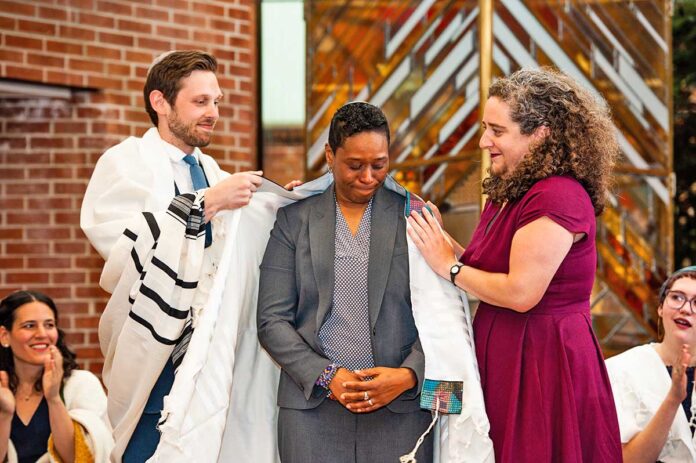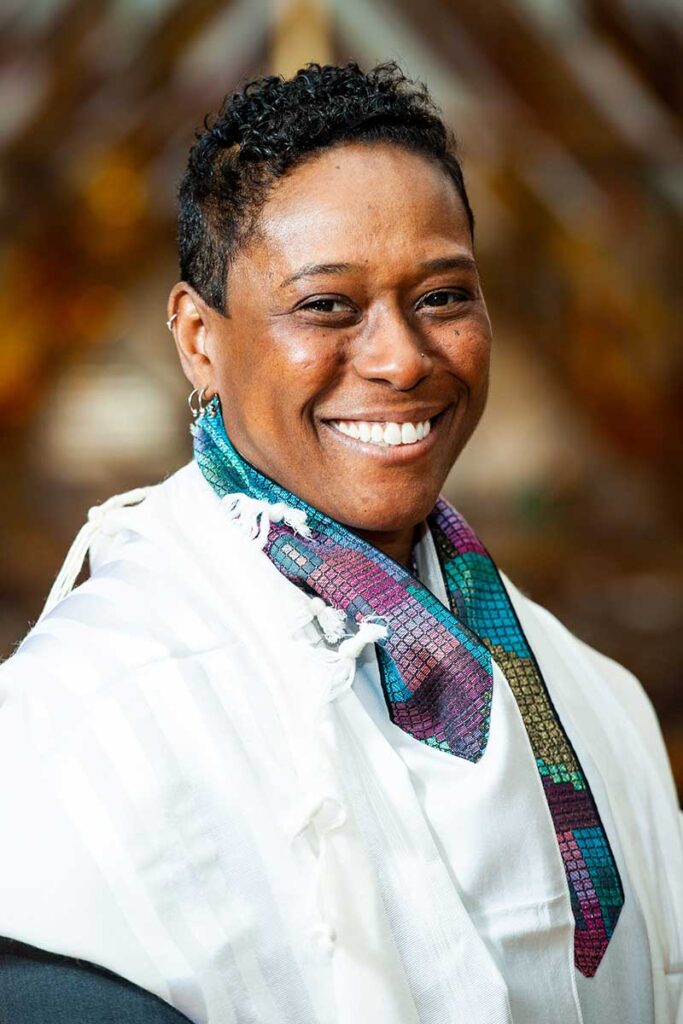
Reconstructing Judaism, the leading organization of the Reconstructionist movement, will soon welcome Rabbi Sandra Lawson, their inaugural director of racial diversity, equity and inclusion. The Wyncote, Pennsylvania-based organization “cultivates and supports Jewish living, learning and leadership for a changing world.”
Systemic racism and elevating the voices of Jewish people of color will be Lawson’s focal points in her new role. She initially approached Reconstructing Judaism staff to discuss the need for racial diversity in the community, and her position grew from there.
Reconstructionism is a progressive Jewish movement rooted in the idea that Judaism evolves over time and embraces Jewish culture and philosophy in addition to custom and law.
“Like many organizations right now, and other organizations who want to commit to the work of diversity, equity and inclusion or racial diversity, many Jewish organizations are predominantly white with predominantly white staff,” Lawson said. “The Reconstructionist movement was similar to that; their mission was to support racial justice, but they had no one in leadership positions that were people of color.”

To perpetuate the inclusion and support of Jews of color in the Reconstructionist community, Lawson will collaborate with senior staff and lay leaders on the relatively new Jews of Color and Allies Group, Tikkun Olam Commission, and Board of Governors to establish methods of proliferating diversity and inclusion, facilitate mentorship, retreats and new courses to make sure Reconstructionist rabbinical students of color can flourish, as well as work with associated communities to develop anti-bias training, racial equity and foster inclusive settings.
“Reckoning with racism — both systemic and personal — is one of the moral demands of our time,” Rabbi Deborah Waxman, Ph.D., president of Reconstructing Judaism, said in a press release. “Sandra has the substance, the experience, the passion and the compassion to help lead our movement in this challenging and necessary work. I am thrilled to work with and to learn from her.”
Lawson’s position is made possible via a grant from the Jews of Color Initiative as part of its initiatives to buttress Black and Brown Jews in leadership roles in Jewish establishments.
“The work Rabbi Sandra has been doing to make Judaism more accessible, particularly for unaffiliated Jews and Jews of diverse backgrounds, is so important,” Ilana Kaufman, executive director of the Jews of Color Initiative, said in a press release. “We are thrilled to see that Reconstructing Judaism has recognized Rabbi Sandra as a vital leader and that they have created this position to ensure that diversity and equity work is a central component of their movement.”
Lawson told PGN that Jewish Americans have become more diverse in terms of race, as well as sexual orientation and gender identity. Numerous studies have shown that Jews of color comprise roughly 12-15% of the American Jewish population, including the 2019 study Counting Inconsistencies, conducted by professors from the University of San Francisco and Stanford University.
“Many in the Jewish community are still holding onto an idea that Jews come from Eastern Europe, and that was true at some point in time,” Lawson said. “A good [portion] of the population did come from Eastern Europe, and that’s just not the reality anymore. Because of interfaith marriages, adoption, conversion, American Jews look like America.”
Despite comprising a higher-than-estimated percentage of the American Jewish population, Jews of color are still disproportionately underrepresented in Jewish leadership roles.
“If your leadership doesn’t reflect what your community actually looks like, that’s not good,” Lawson said. “Every rabbinical school right now has a Black student in it and has a person of color in it. Rabbinical schools are becoming more racially diverse. We also are training rabbis who are trans, rabbis who are queer, and we need people that can support them, look like them and are like them in leadership roles.”
She also pointed out that many Jewish Americans still experience homophobia in addition to racism. “We need to really move out of that,” she said. “We need to make our communities more equitable.”
Lawson first decided to go to rabbinical school in the mid 2000s, around the time the Supreme Court ruled sodomy laws unconstitutional. After spending time doing political activism in Atlanta in response to U.S. states wanting to ban gay marriage, Lawson found she was much better suited to engage in similar conversations with clergy members who wanted to be more interfaith at the time, she said.
“Because I had formed relationships with other queer clergy in Atlanta, I was invited by them to participate in some of the interfaith conversations that helped organize clergy,” Lawson said. “I found that I could have the same conversations with clergy, even clergy who thought I was going to go to hell because I’m gay or Jewish. I [felt and still feel] that clergy are prewired…to find common ground. Even though I was at the table with clergy who probably would disagree with [me] on a lot, we could find common ground on the fact that the state had no business in our bedrooms.”
Although Lawson was initially on track to get a Ph.D. in sociology, her conversations with clergy members ultimately drove her to go to rabbinical school, even though she was apprehensive about such a dramatic career shift. She was ordained as a rabbi by the Reconstructionist Rabbinical College, which is affiliated with Reconstructing Judaism.
Lawson currently resides in Burlington, North Carolina. She will start her new role at Reconstructing Judaism this March.
“I’m really excited to help create policies to move us in the direction that we want to go,” she said. “I’m also excited to be able to mentor rabbinical students, especially rabbinical students of color who I’m sure have already faced discrimination. But also making sure they’re heard — that I understand, that I’ve experienced that too — and giving them the tools to navigate racism in the Jewish community.”